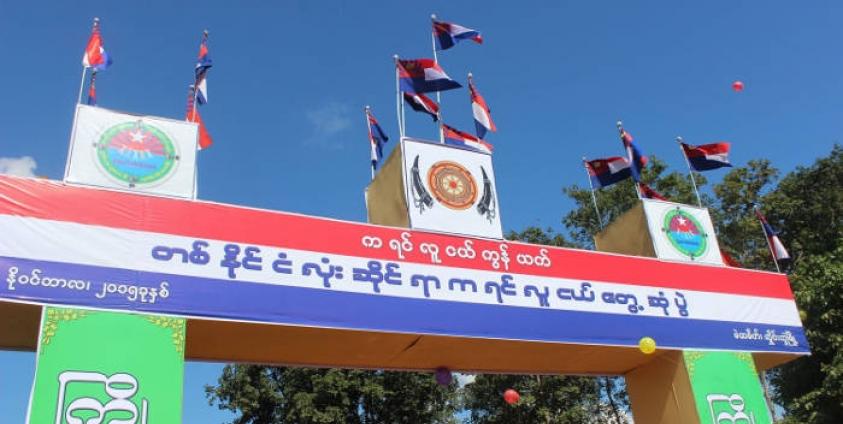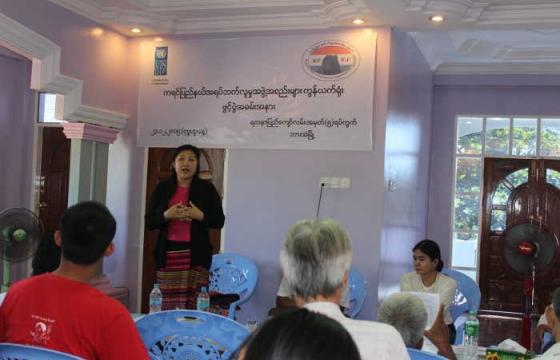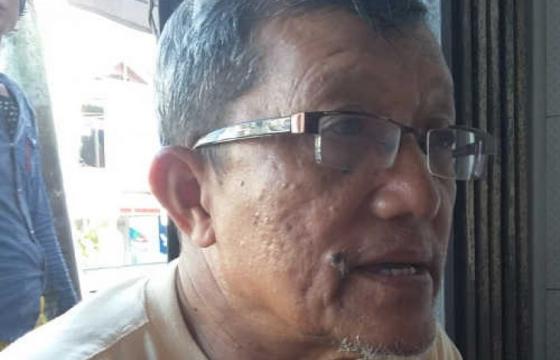Sa Eh Sue — Karen youth want the National League for Democracy to make peace their first priority when they take office as the new government early next year. A six-point press release calling for national reconciliation, ethnic affairs and political dialogue to be included in all future peace discussions was released following a recent conference by Karen Youth Network (KYN) in Maesameik village in Hlaingbwe Township, Karen State.
KYN spokesperson Saw Jack Pasi said: “As the peace process was started before 2015, some leaders think the next government may not be able to carry through with it as well as U Thein Sein’s government (the current president of Myanmar).”
Karen political parties were defeated by the NLD in the recent election but youth are urging them to continue being involved with all relevant issues affecting Karen State and the country.
The KYN press release welcomed the recent signing of the Nationwide Ceasefire Agreement, at the same time expressing concern that only some of the ethnic armed groups took part. Eight of the fifteen groups recognized by the government have endorsed it. While nearly two-thirds of the country’s twenty-one armed groups have rejected it, or were shut out.
The press release also called for an immediate end to fighting between the Myanmar Armed Forces and non-state armed groups which has been ongoing in Shan and Kachin states.
The KYN welcomed the National League for Democracy’s (NLD) landslide victory in the recent election, applauding all efforts to amend the 2008 Constitution that reserves twenty-five percent of seats in Parliament to the military and bars Daw Aung San Suu Kyi from being president. They also supported the NLD’s election promise to establish fair rule of law for Myanmar.
“These (issues) are a concern for the whole country. We will also implement (these policies) in Karen State,” said Nan Khin Htwe Myint, NLD chairperson for Karen State and a member of the party’s central executive committee.
Over 400 people from across the country attended the four-day youth conference drawing a diverse range of representatives from political parties, civil societies, religious organizations, ethnic armed groups and literature and cultural groups.
Translated by Thida Linn
Edited by BNI staff






